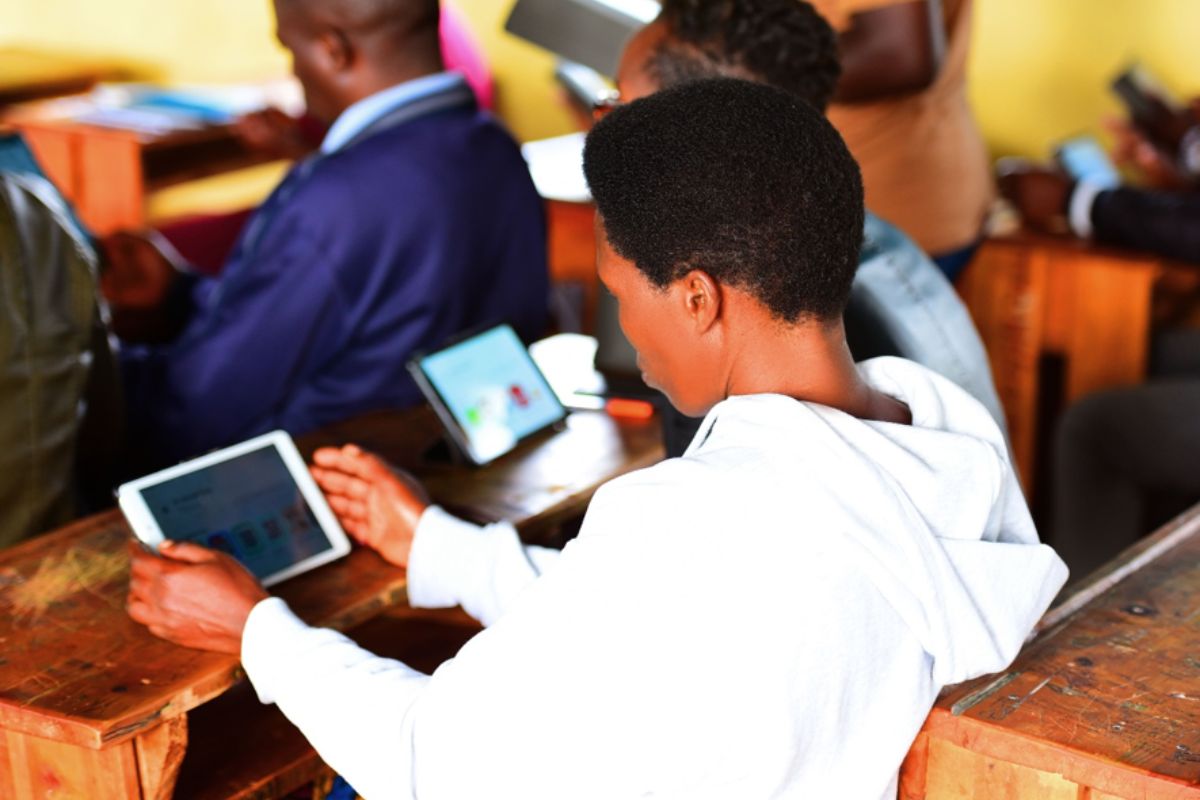Norwich Institute for Language Education upskill thousands of English language teachers in Rwanda.

A thorough English language teaching programme was given to 2500 local secondary school teachers in Rwanda by Norwich Institute for Language Education (@NILE_ELT), a division of the INTO Group.
Through the NILE initiative, the British Council and INTO University Partnerships will teach English to thousands of Rwandan teachers. Thus far, 2500 secondary school teachers have received support from the English language development project.
Teachers in the first cohort of the programme began their virtual studies in August 2023 using the digital tablets that were provided to them for the duration of the initiative. Through the Rwandan Education Board (REB) learning platform, participating students completed self-study modules in English grammar and vocabulary, which included end-of-module exams. They also participated in regular virtual classes with their e-Teacher moderators. Language consultants from NILE, one of the largest global providers of professional development courses for English language instruction, virtually taught the programme to students in partnership with the British Council.
The 20-week language development program forms part of the wider STELIR (Secondary Teachers English Language Improvement Rwanda) project. STELIR is delivered in collaboration with the Mastercard Foundation and implemented by the British Council in partnership with the Rwanda Basic Education Board (REB). With 1,000 Lower Secondary Pre-Service teachers undergoing training at the University of Rwanda College of Education (URCE) and 6,000 in-service teachers spread across 14 districts, the ultimate goal of STELIR is to raise the English language proficiency of Lower Secondary Teachers in the Rwandan state education system to at least an intermediate level.
Rose Aylett, NILE Consultant Trainer, said:
“Throughout the project, both learning participants and e-teacher moderators grew in confidence.
“By the end of the session, those teachers who had spoken very little in the first few were confidently and enthusiastically speaking English with their colleagues. In a similar vein, the e-Teacher moderators I had the good fortune to collaborate with also advanced their technology skills and learned a great deal of new, practical teaching methods.”
Regarded as one of the most important investments in Rwanda’s economic future, education has experienced significant expansion and transformation in the country in recent years. Improved access, quality, and relevance of education are the key objectives of the current seven-year strategic plan that the education system is nearing its conclusion.
Jean, an English language programme graduate, said:
“It’s been an extremely productive experience engaging in live sessions with our e-Trainer throughout the training programme, enhancing our skills to deliver English language lessons effectively as teachers,”
“We’ve made great progress in our grammar, communication, and writing skills through group projects, brainstorming sessions, and conversations.”
Francois, a secondary English teacher, also participated in the first cohort of teacher trainees. He shared his reflections on his program-completion experience as a visually impaired student: “At first, I feared difficulties keeping up with others,” he stated. “Nonetheless, the instructors kept me actively involved during the live sessions, which made the learning process approachable. I was able to write, talk, and listen more fluently and comprehend English topics better during the instruction. Considering my unique educational needs, all of the e-trainers I collaborated with made sure to maintain inclusion. The live lessons were truly inclusive; I was treated equally with my colleagues and teachers, and I was given extra consideration so that I could take part in activities with other students.”
In addition to the initial cohort of secondary teachers who finished their English language training, a small number of English teacher trainers from the area also completed the programme and acquired the necessary skills to continue supporting Rwandan teachers.
Ruth Bath, a senior trainer and STELIR project coordinator at British Council Rwanda was one of the teacher trainers. She states:
“I worked with the NILE team for six months, and they were always well-organized, communicative, and student-centred.”
In 2006, NILE was acquired by INTO University Partnerships. Since then, the collaboration has helped NILE continue to grow internationally by offering a variety of English language instruction and support services to teachers everywhere. Over 70,000 instructors from more than 90 countries have received training from NILE since 1995.
The organisation supports thousands of educators working in all facets of English language teaching, including government ministries, private language schools, and elementary and postsecondary teachers. NILE often contributes to the creation and execution of significant global education reform projects in addition to offering training programmes online, in the UK, and abroad.
Mike Riley, the deputy director of NILE, stated:
“Working with teachers throughout Rwanda and supporting efforts to achieve a sustainable change in the Rwandan education system has been inspiring. We send our best wishes to the English teachers in Rwanda as they continue to train local secondary educators, who we know are eager to apply their newly acquired knowledge.”
Over the next few weeks, NILE will continue working with the British Council in Rwanda to provide training, with a second group of 800 trainee teachers set to finish the programme in March 2024.











Responses